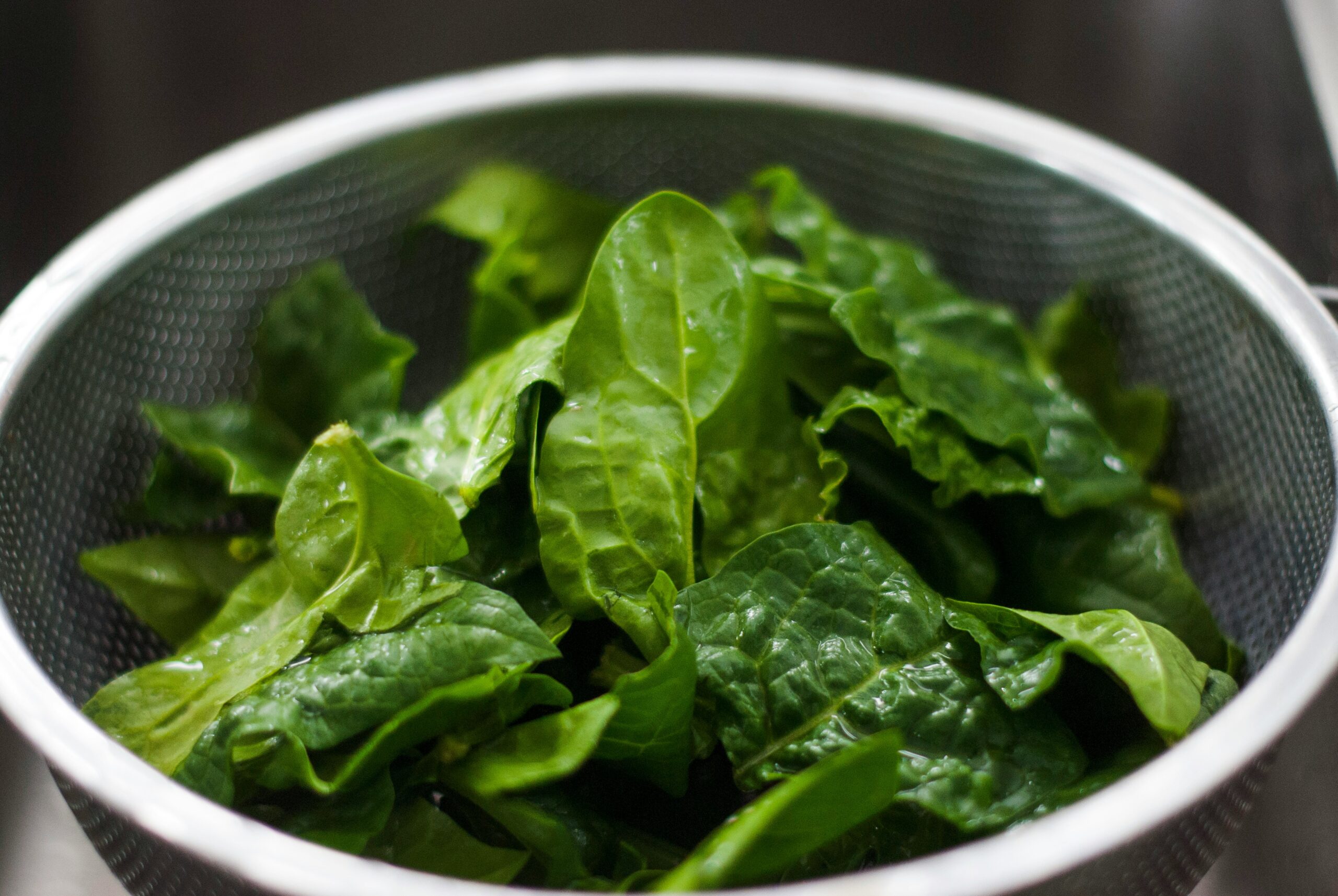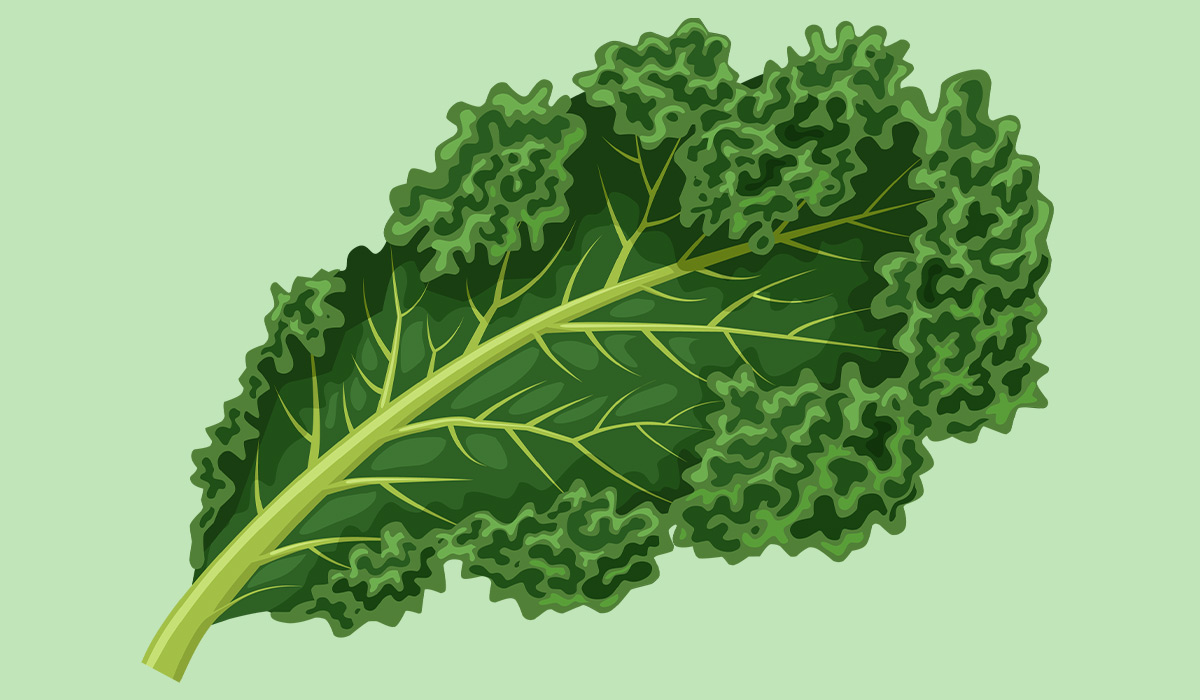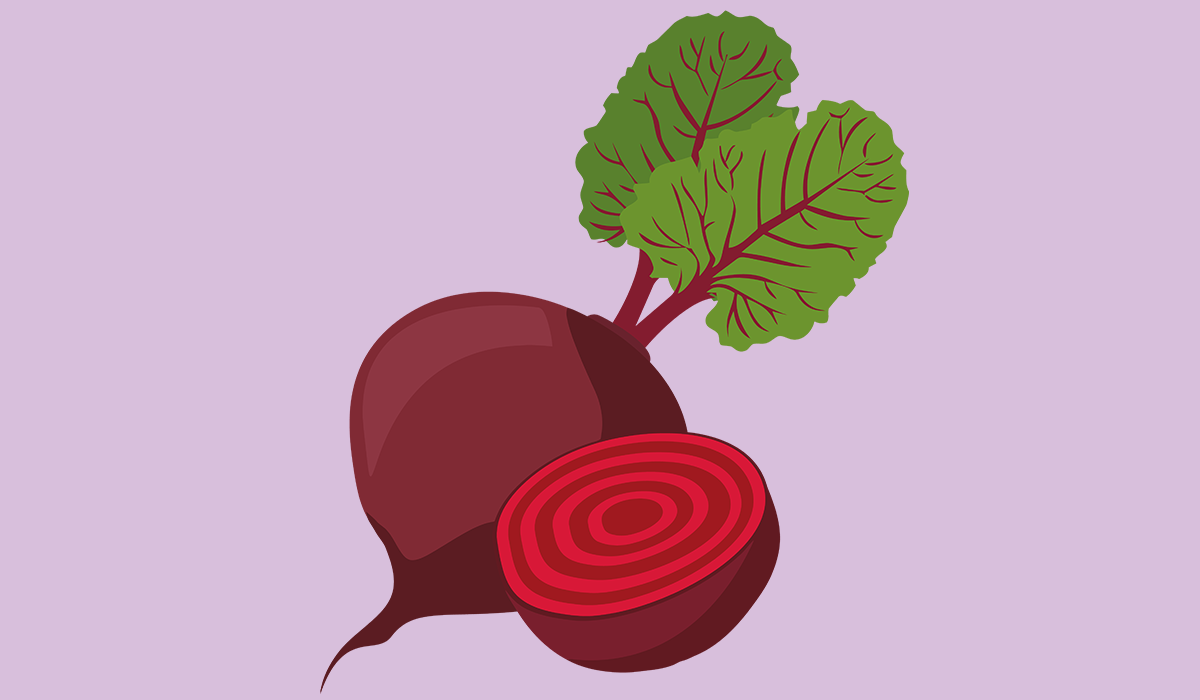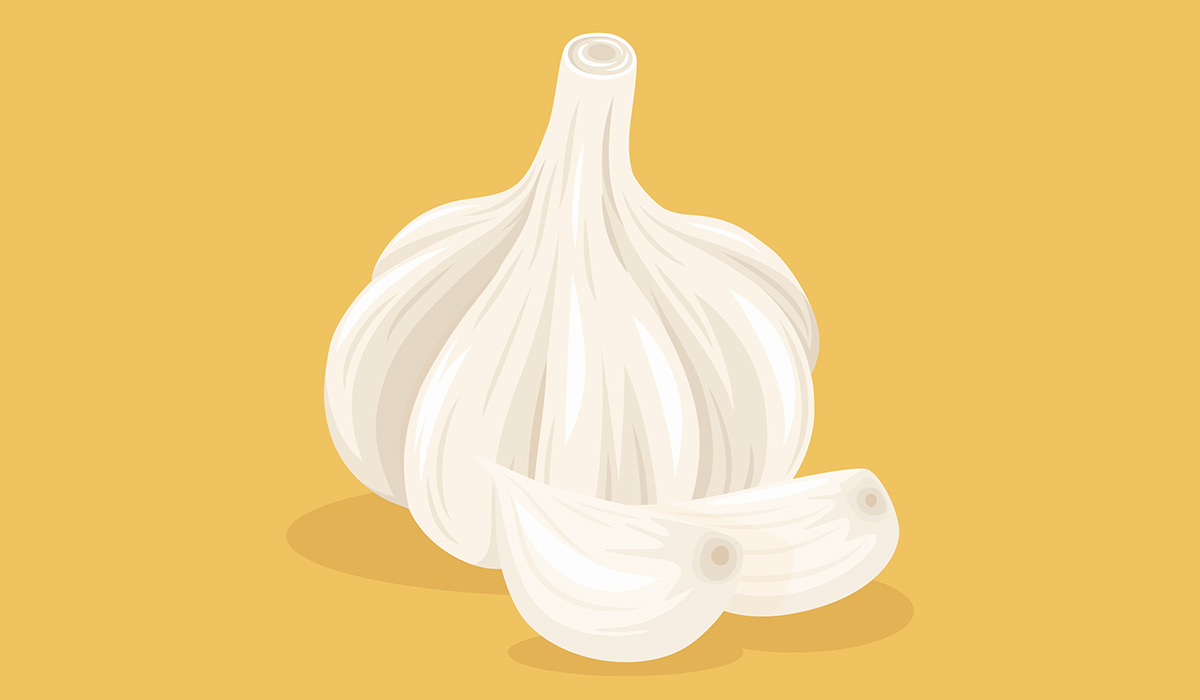Spinach is a green vegetable, the edible leaves of the plant. Vegetable spinach is a plant that forms compact rosettes of leaves with short stems that vary depending on the variety. The plant belongs to the amaranth family and is related to quinoa and beet. This vegetable is available year-round in fresh and frozen form.
The green leaves of spinach contain a variety of vitamins and valuable minerals necessary for health. Dozens of scientific studies prove that spinach is an excellent dietary ingredient.
One of its benefits is that the plant has low caloric indices. Adding this leafy, green plant to food allows the dish to be naturally flavored with vitamins. Whether boiled or fresh, spinach is a great option that can be replaced by lettuce. Spinach has many valuable health-promoting properties, but it is only suitable for some people. It should be limited to people who have been diagnosed with certain diseases.

Spinach is a very healthy vegetable, and it has long been known that natural products in the diet bring many health benefits. The spinach plant is native to Southwest Asia, and cultivation has spread worldwide. Spinach is a leafy plant known to scientists and botanists as Spinacia oleracea L![]() . Many studies confirm the high medicinal value of spinach. Due to the compactness of many components and active compounds, spinach can protect and help treat various diseases. Accordingly, spinach has the following health benefits:
. Many studies confirm the high medicinal value of spinach. Due to the compactness of many components and active compounds, spinach can protect and help treat various diseases. Accordingly, spinach has the following health benefits:
The antioxidant action of spinach consists, among other things, of inhibiting the activity of enzymes involved in producing free radicals. In the plant, we can find many natural antioxidants that show high activity against free radicals. Thus, eating green leaves can reduce oxidative stress, protecting your body from damage to protein, fat, and DNA molecules. Oxidative stress can also cause chronic inflammation and lead to the development of other diseases, so it's worth taking care to protect and strengthen your body properly.

Spinach is a rich source of anti-inflammatory ingredients. In India's traditional medicine, people use spinach to fight inflammation. The plant was used to treat liver inflammation![]() and jaundice
and jaundice![]() . Spinach leaves can also help with inflammation of the lungs and intestines. In addition, they can exhibit a cooling effect in febrile conditions. Due to the anti-inflammatory effect of spinach, the plant can relieve symptoms and protect the body from various infections.
. Spinach leaves can also help with inflammation of the lungs and intestines. In addition, they can exhibit a cooling effect in febrile conditions. Due to the anti-inflammatory effect of spinach, the plant can relieve symptoms and protect the body from various infections.
Histamine is one of the most important chemical compounds of the human body. However, in some cases, histamine is released rapidly in the organism, particularly in immune reaction to otherwise harmless allergens. That is why it is important to lower the release of histamine in the bodies of people with allergies, which is when spinach is useful.
This plant is beneficial in many processes since histamine is involved in normal digestion. It influences intestinal peristalsis and gastric acid secretion, the sleep-wake cycle, and many other actions. An allergic person can encounter a sudden increase in histamine caused by a variety of unusual situations, such as stress, sickness, and exercise, so these people can create an antihistaminic diet.
Spinach is a remarkable plant that can protect the human body even against dangerous diseases. Studies have noted that spinach's components can inhibit cancer cell activity. Therefore, eating spinach can help prevent cancer. It is now known that spinach has anti-cancer effects mainly due to the beta-carotene![]() contained in it, which can limit the development of various diseases. The impact of diet on the risk of developing cancer is significant, so it is worthwhile to take care of protection through food. However, it should also be emphasized that diet is not a substitute for professional treatment in cancer patients.
contained in it, which can limit the development of various diseases. The impact of diet on the risk of developing cancer is significant, so it is worthwhile to take care of protection through food. However, it should also be emphasized that diet is not a substitute for professional treatment in cancer patients.
Green leafy vegetables are an invaluable source of nutrients for the liver. These plants abound in chlorophyll![]() , which assists the liver in cleansing. Spinach can restore the liver's serum parameters to normal levels, so it appears to be possible to protect the liver by adding this green to the diet of a concerned patient. The liver is the body's greatest gland; however, its function is not limited to the digestion of fats, and it is important to ensure the general well-being of this organ. The liver diet can also be used by patients who are taking medications that put a strain on the liver.
, which assists the liver in cleansing. Spinach can restore the liver's serum parameters to normal levels, so it appears to be possible to protect the liver by adding this green to the diet of a concerned patient. The liver is the body's greatest gland; however, its function is not limited to the digestion of fats, and it is important to ensure the general well-being of this organ. The liver diet can also be used by patients who are taking medications that put a strain on the liver.

Spinach may be one of the key foods for people with cardiovascular diseases. Its nitrates decrease blood pressure, which is crucial since hypertension is often the first diagnosis, which further causes other pathologies and cardiovascular diseases. One of the main methods of treatment for those who suffer from heart conditions is diet modification. Spinach is rich in substances that can promote the avoidance of heart diseases, thus reducing the threat of atherosclerosis or heart stroke.
Spinach also contains elements that support the health of the organ of sight. The green vegetable is rich in lutein![]() , which slows down the process of macular degeneration. Macular degeneration of the eye is a progressive eye disease that can lead to significant deterioration of vision, including blindness. When this eye disease occurs, spinach can alleviate the symptoms and course. The protective effect is that spinach allows the structures of the eyeball to be rebuilt and supports the preservation of normal vision.
, which slows down the process of macular degeneration. Macular degeneration of the eye is a progressive eye disease that can lead to significant deterioration of vision, including blindness. When this eye disease occurs, spinach can alleviate the symptoms and course. The protective effect is that spinach allows the structures of the eyeball to be rebuilt and supports the preservation of normal vision.
Gamma radiation is less aggressive than alpha and beta radiation. Still, it isn't easy to protect against because it can penetrate very deeply into the bodies of humans and animals. Gamma radiation can damage human cells, which can be used to treat cancer. Therefore, radiation is used during diagnosis or in radiation therapy. Spinach can protect against the harmful effects of gamma radiation.
Spinach can also support bone health. You can strengthen your bones by adding foods to your diet that increase bone density. Such a product is spinach, which prevents the loss of bone mass and can, therefore, protect against the development of osteoporosis. After age 30, dietary and lifestyle considerations are vital for preserving this maximum bone mass or for the natural rise. In addition, spinach has anti-inflammatory effects, which help to reduce the pain caused by arthritis.

Various nutrients and bioactive elements in vegetables are beneficial for human health. Many scientific studies show that spinach is a sought-after product because it can protect against numerous diseases. Spinach is a wonderful vegetable for consumption because it is low in calories and almost fat-free. Besides, spinach has a limited amount of carbohydrates and a great amount of protein. The leaves possess important fiber for the human body. Learn about the various components included in spinach leaves:
Spinach is one of the vegetables that contain flavonoids in different concentrations. Flavonoids represent a class of compounds that have several biological properties and are important in regulating the vital processes of plants. At the same time, flavonoids positively affect the human organism due to their antioxidant properties. The direct mechanisms of the antioxidant action of flavonoids primarily include the capture of oxygen-free radicals and their most active forms.
You will find flavonoids like quercetin![]() and luteolin
and luteolin![]() in spinach, among others. Quercetin can increase the body's immunity and lower mortality risk when cardiovascular-related diseases are the cause. Luteolin is also suitable for the heart organ, protecting the organs of vision and having many other functions.
in spinach, among others. Quercetin can increase the body's immunity and lower mortality risk when cardiovascular-related diseases are the cause. Luteolin is also suitable for the heart organ, protecting the organs of vision and having many other functions.
So far, it has been evaluated that polyphenols can be of remarkable importance for disease prevention. Polyphenols are potent antioxidants, meaning that they neutralize free radicals. Oxidants can cause some types of cancer, so if you eat foods with a lot of polyphenols, you can potentially reduce the risk of cancer. Among other things, we can find derivatives of coumaric acid![]() in spinach. Phenolic acids exhibit several health-promoting properties.
in spinach. Phenolic acids exhibit several health-promoting properties.

Carotenoids have essential functions in the plant world and can also be of great value to the human body. Carotenoids are a group of natural pigments that Exhibit antioxidant activity, preventing the development of muscular illnesses and even a few malignancies. The compounds are also responsible for spinach, preventing the risk of osteoporosis and age-related macular degeneration. The ingredient we find in spinach systems is beta-carotene![]() , which is also involved in affecting our skin health.
, which is also involved in affecting our skin health.
In spinach, you will find a variety of vitamins. It has a high concentration of vitamin A, essential for the proper functioning of the human body. In addition, there are large amounts of vitamin C in the leaves, which, among other things, for the work of the immune and circulatory systems. Oxalic acid is also the end product of vitamin C metabolism. Vitamin E contained in the vegetable also supports the circulatory system and has many other functions. Vitamin K, on the other hand, is essential for the formation of blood clotting factors. Spinach also has folic acid, a B vitamin that is good for the proper functioning of many systems.
In addition to vitamins and other elements, spinach contains minerals. Raw spinach contains large amounts of magnesium, which is essential for proper brain function. Manganese is also an important element that, among other things, affects the skeletal system, protecting against osteoporosis. Calcium is also known to protect and strengthen bones. Phosphorus and zinc are essential for the proper functioning of all cells in the body, and potassium is vital for the nervous system.
All these minerals are contained in the leafy vegetable. Eating spinach also helps with iron deficiencies, providing large amounts of this mineral. Copper additionally participates in the process of iron absorption.

Spinach is a fantastic vegetable to have in your diet. Spinach has health properties because it provides high energy value while remaining small. As a result, it is easy to add spinach to your diet by mixing it with various meals. Raw green leaves are ideal for salad, but spinach can also be cooked. But despite its nutritional properties and ease of use, spinach is safe for some. Some of us should avoid this vegetable. Contraindications of spinach include:
People with a food allergy to spinach should not eat it. It is not common, and inhalant allergies are rare; however, they are possible. If you are unsure whether you have allergies to spinach, get allergy tests done. Diagnosis of food allergies is performed by, among other things, determining serum levels of indicators against specific food allergens found in selected foods.
People with kidney disease should avoid spinach in their diet. The vegetable contains large amounts of oxalates![]() , which crystallize. This is one of the leading causes of kidney stones. If you want to prevent kidney stones or treat conditions of excess oxalic acid in the body, it is advisable to follow a low-oxalate diet. In addition, it is advisable to limit the intake of vitamin C. Consuming too much oxalic acid can also cause harmful side effects.
, which crystallize. This is one of the leading causes of kidney stones. If you want to prevent kidney stones or treat conditions of excess oxalic acid in the body, it is advisable to follow a low-oxalate diet. In addition, it is advisable to limit the intake of vitamin C. Consuming too much oxalic acid can also cause harmful side effects.
Spinach is one of the products with a high amount of oxalates. Therefore, people with sensitive or weakened digestive systems should also be wary of spinach. Excess oxalic acid in the body can cause diarrhea and irritate the epithelium of the mouth and other parts of the digestive tract. People with damage to the gastric mucosa should, therefore, not consume spinach, as oxalates can worsen their condition.
Spinach has many minerals, so it seems logical to eat it when you want to replenish deficiencies. However, this can have quite the opposite effect. This is all due to the large vegetable oxalates in the vegetable's leaves. Oxalates are absorbed by the body and combine with magnesium or calcium, reducing their amount in bones, muscles, and joints. The combinations of oxalates with minerals are permanent and detrimental to health.
Large amounts of minerals combined with vegetables rich in oxalic acid are also not a good idea. Such a condition further increases the absorption of oxalates from the digestive tract. In addition, oxalates can significantly increase the amount of calcium excreted, which can contribute to overstimulation.
Table of Contents

Kale is an unusual leafy vegetable. It boasts many health benefits thanks to its valuable ingredients. Want to find out… read more »

Moringa is a plant with valuable properties. Read about the benefits of consuming moringa leaves. You will also find dosage… read more »

Asparagus is a vegetable that has an extraordinary flavour and remarkable properties. Learn about the advantages and disadvantages of the… read more »

Beetroot is a very healthy vegetable full of many bioactive elements. Learn about the numerous health benefits of these plants… read more »

Parsley is an edible green leaf that has many health properties. However, some people should be wary of the effects… read more »

Garlic is a vegetable with many health benefits. But it also has side effects and contraindications. Expand your knowledge of… read more »

Jicama is a vegetable that offers various health benefits. Let's explore the nutrients present in jicama and discover some simple… read more »

Tomatoes are very tasty vegetables that have many health benefits, thanks to their nutrient content. However, there are also contraindications.… read more »

Echinacea is a plant with beautiful flowers and many health benefits. Learn about the properties of coneflowers products and safety… read more »